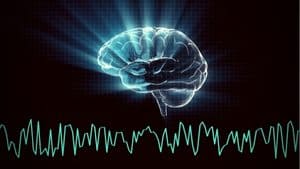
It’s a common misconception that you’ll be sleepy and more easily manipulated if you’re hypnotized. Most people think that hypnosis is the same as sleeping. Do most people assume hypnosis is similar to sleep but is this true?
As we know, It is common for individuals to report feeling calm and physically relaxed when hypnotized during hypnotherapy. They can give their whole attention to whatever occupies their minds in this stage. Hypnosis is a normal mental state that provides unfiltered access to the subconscious, where our habits and routines are stored.
Therefore, what would normally need a drawn-out or winding re-learning procedure in our fully awake condition may be skipped over using hypnosis.
In this article, we will deep dive into and answer questions about “Is hypnosis the same as sleep?”.
Repetition is the key to programming the subconscious mind.
- Before going to bed, your brain waves are naturally lower, leading to a more useful stream of consciousness with more questions and connections.
- By using hypnotic methods, hypnosis allows us to communicate with the subconscious. Indeed, hypnosis, meditation, binaural beats, and the natural process of falling asleep all generate alpha, theta, and delta waves, but since the threads involved in each of these activities are unique, the waves produced by these states are not comparable.
- According to Hypnoterepist ERIC Kand, Your subconscious mind will be less receptive to suggestions for changes if you fall asleep throughout hypnotherapy. (source) Because you might miss out on some of the session’s advantages.
- Sleep is not trance, so hypnosis does not make the same as falling asleep. A person stays awake, but their attention is focused in a way that may make them seem hypnotized or in a trance.
- According to neuroimaging studies, sleep has been linked to certain patterns of brain activity, and they have not been established for hypnosis.
Understanding Hypnosis And Brain Waves

Before sleep, our brain secretes “theta brain waves,” which help you calm down and daydream. Also, in the Theta brain waves, you are more vulnerable to reaching affirmation and subliminal.
Theta activity is characteristic of both waking and REM sleep in humans and animals.
How much sleep and how deep is essential because of subconscious connection through brain waves.
- Theta brain waves: You connect your subconscious mind mostly before sleep or daydreaming. It will also help you get to relax and have vivid dreams.
- Delta brain waves: Slowest brain waves connected to a most profound calm state source. The state also releases growth hormones stimulating weight loss and rejuvenation. This is also called “non-rem sleep.”
The brain waves mainly depend on other things. However, there is some meditation music, such as binaural beats could help you change brain waves and relieve stress.
Related: The Benefits of Meditation on Your Daily Life
The alpha brain wave, also known as the “relaxation response,” is the foundation of hypnosis, according to scholarly research into various therapeutic modalities from antiquity to the present.
ADHD people tend to have unbalanced brain waves. The human brain needs certain brain waves before sleeping, so without it will be hard to sleep or focus. Unbalanced brain waves cause hyperactivity.
Related: How to get answers from your subconscious mind?
Hypnosis Isn’t The Same As Sleep
Sleeping is not the same as being hypnotized. Hypnosis is characterized by deep relaxation and concentrated attention. It is more than just sleeping or resting.
Sleeping is a natural and necessary process for the human body to restore and replenish itself. Hypnosis, on the other hand, can assist patients in relaxing and achieving a deep concentration state, allowing them to explore their ideas, feelings, memories, or imaginations without fear or worry.
Recent scientific studies have shown that it can influence a person’s subconscious thought processes while they rest. Dr. Bruce Lipton, a leading molecular scientist, advised that you can reprogram the subconscious mind through hypnosis, subliminal, EFT, and other techniques.
However, you are mostly aware of the environment in that hypnotic state.
According to Micheal Sealey, To achieve hypnosis, you do not need to be sleepy or fall asleep. Instead, a person is awake but seems to be in a trance-like state because their attention is so narrowly focused on a single thing or imagination.
Related: Self Hypnosis: How To Allow Me To Be Hypnotized?
What happens in your brain when you enter a hypnotic trance?
No one can hypnotize without your will and desire. However, when you are hypnotized, you can experience in your brain:
- Parasympathetic activation and repair occur mode; You should become aware that your breathing is becoming more relaxed and that the majority of your muscles are softening.
- Your brain enters a trance-like state with diminished peripheral awareness and increased attention.
- According to new brain-function studies, your brain waves shift, and one part of the brain, known as the dorsal anterior cingulate cortex, becomes less active.
What are some things people think about hypnosis that aren’t true?
- Myth 1: Hypnosis is a way to control someone’s mind. The truth is that you are always in charge of yourself when you are hypnotized.
- Myth 2: Being in hypnosis is like being asleep. You are fully aware while you are under hypnosis. During traditional hypnosis, if the eyes are closed, and the body is still, it might look like the person is asleep.
- Myth 3: When hypnotized, people forget things. People who don’t know much about hypnosis have been told that when they come out of it, they won’t remember what happened. Even though it’s possible, it doesn’t happen all that often.
Related: What misconceptions and myths surround hypnosis?
How Can I Get Ready for Hypnosis So It Will Be Most Effective?
- You don’t need to do anything in advance to prepare for hypnosis. However, dressing comfortably is a good idea. Additionally, to prevent dozing off, ensure you get enough sleep the night before the session. Choose a hypnosis-experienced therapist or medical specialist.
- Hypnosis will work better and more quickly if you concentrate on the hypnotherapist’s words and try not to resist. Your level of suggestibility while hypnotized depends on your resistance. If your conscious mind works together, your subconscious can accept the affirmations. The key to successful hypnosis is teamwork.
- Hypnosis kind of collaborates through working together with hypnotherapists. However, The hypnotherapist should be licensed and understand your needs in other ways, and it’s really hard for you to trust them.
Related: How To Prepare For Hypnosis?
You can never be hypnotized against your will despite what you may have heard. Some people may benefit from hypnosis, but not everyone. However, if a hypnosis session can be for alcohol addictions, it will help you overcome addictions, including alcohol and smoking.
How long can you stay in hypnosis?
Depending on the therapist, a session typically lasts anywhere from 30 minutes to two hours on average. If you trust your hypnotherapist, you will get better benefits from the hypnosis session. During that session, your hypnotherapist will speak to you about what you want to change and why you want to change it. After that, the real hypnosis will typically last for 20 to 30 minutes of that session on average. If
Final Thoughts
It is possible to enter into a hypnotic state while you are awake. In this case, you will be in an altered state of consciousness, meaning that your mind and body will function differently from when you are awake.
Hypnosis does not cause any loss of consciousness and does not stop the body from functioning normally.
In progressive relaxation techniques, for example, you start by tensing and relaxing the muscles in your toes and progressively working your way up to your neck and head. Imagination will make you in a calm state.
Yet, from experience, you will lose some benefits if you sleep in a hypnotic state. However, this shows as hypnosis isn’t the same as sleeping because they are different.
Sleeping is mostly related to being completely “unconscious” than in a hypnotic trance, and you are most conscious.
Can You Fall Asleep While Hypnotized?
The simple answer is yes, it is possible to fall off under hypnosis. Because the overactive mind stops, your brain waves change the theta waves, which is highly relaxed. If you have sleep deprivation, you might fall asleep easier while under hypnosis.

